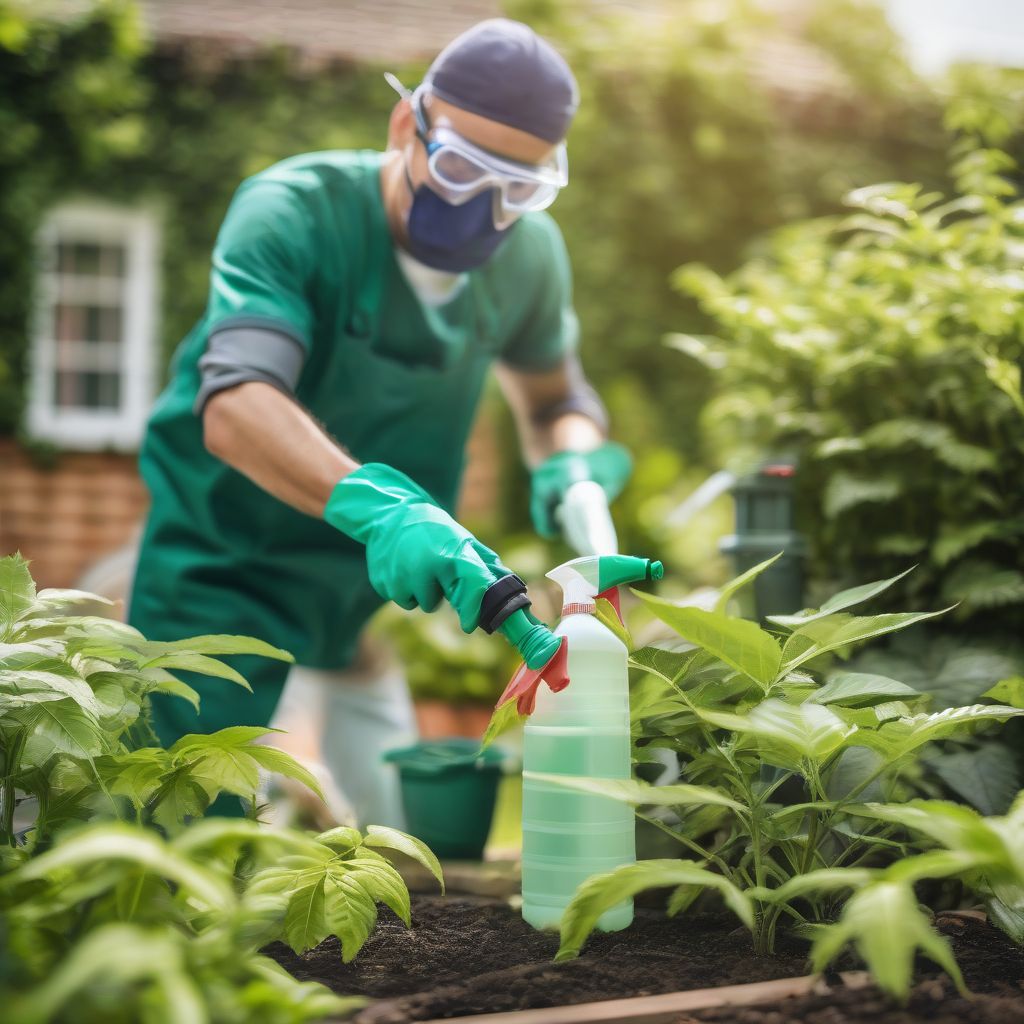Imagine a lush garden teeming with vibrant vegetables, but then, disaster strikes! Tiny pests begin to feast on your precious plants, threatening to ruin your hard work. The thought of using harsh chemicals fills you with dread, knowing they could harm beneficial insects and potentially contaminate your food. What if there was a natural, effective solution? Enter neem oil, a powerful yet safe organic pesticide derived from the neem tree. Let’s explore how to use neem oil safely and effectively in your garden.
What is Neem Oil and How Does it Work?
Neem oil is a vegetable oil pressed from the seeds of the neem tree (Azadirachta indica), native to India. This oil contains a variety of active compounds, the most potent being azadirachtin. Azadirachtin disrupts the hormonal balance of insects, affecting their feeding, molting, and reproduction. This makes neem oil an excellent insecticide, miticide, and fungicide, effective against a wide range of pests.
Understanding Azadirachtin: The Key Ingredient
Azadirachtin is a naturally occurring compound that acts as an insect growth regulator (IGR). Unlike synthetic pesticides that kill insects instantly, azadirachtin works by disrupting their life cycle. It interferes with the insect’s ability to molt, preventing them from developing into adults and reproducing. This reduces pest populations over time, providing long-lasting protection for your plants. “Think of it as a gentle nudge rather than a forceful shove,” says Dr. Greenthumb, a leading expert in organic pest control. “Neem oil works with nature, not against it.”
Benefits of Using Neem Oil in Your Garden
Neem oil offers several advantages for organic gardeners:
- Broad-spectrum control: Effective against a wide range of insects, including aphids, whiteflies, spider mites, mealybugs, and caterpillars.
- Safe for beneficial insects: When used correctly, neem oil targets pests while sparing beneficial insects like bees, ladybugs, and lacewings. This is because it primarily affects insects that chew on plants, while pollinators are less likely to ingest the oil.
- Biodegradable and environmentally friendly: Neem oil breaks down quickly in the environment, minimizing its impact on soil and water.
- Safe for humans and pets: Neem oil is generally considered safe for humans and pets, although it’s always best to take precautions like wearing gloves and avoiding direct contact with skin.
How to Use Neem Oil Safely and Effectively
Using neem oil effectively requires proper preparation and application:
Choosing the Right Neem Oil Product
Look for cold-pressed, unrefined neem oil that is specifically formulated for horticultural use. Avoid products with added chemicals or solvents.
Mixing and Applying Neem Oil
Neem oil doesn’t mix well with water, so you’ll need an emulsifier. Many commercial neem oil products come with pre-mixed emulsifiers. If you’re using pure neem oil, you can mix it with a mild liquid soap. Follow the instructions on the product label for the correct dilution ratio.
Apply the neem oil solution to your plants using a spray bottle, ensuring thorough coverage of both the upper and lower surfaces of leaves. It’s best to apply neem oil in the early morning or late evening when temperatures are cooler and beneficial insects are less active.
Frequency of Application
The frequency of application depends on the severity of the infestation. Generally, applying neem oil every 7-14 days is sufficient. Monitor your plants regularly and adjust the frequency as needed.
Precautions and Tips for Using Neem Oil
- Test on a small area first: Before applying neem oil to your entire garden, test it on a small area of one plant to ensure it doesn’t cause any adverse reactions.
- Avoid spraying during hot weather: Neem oil can damage plants if applied during the hottest part of the day.
- Store neem oil properly: Store neem oil in a cool, dark place to prevent degradation.
- Follow label instructions: Always follow the manufacturer’s instructions on the product label.
Common Questions about Using Neem Oil
- Does neem oil kill beneficial insects? Neem oil can affect beneficial insects if they ingest it directly. However, its impact is generally minimal compared to synthetic pesticides. Applying neem oil during cooler hours when beneficial insects are less active can further minimize the risk.
- Is neem oil safe for vegetables? Yes, neem oil is generally considered safe for use on edible plants. However, it’s important to wash your vegetables thoroughly before consuming them.
- How long does it take for neem oil to work? Neem oil doesn’t kill pests instantly. It can take several days to see its full effect.
 Using Neem Oil Safely in Organic Pest Control
Using Neem Oil Safely in Organic Pest Control
Conclusion
Neem oil is a valuable tool for organic gardeners seeking a safe and effective way to control pests. By understanding how to use neem oil correctly and following the precautions outlined in this article, you can protect your plants while minimizing your impact on the environment. So, ditch the harsh chemicals and embrace the power of nature with neem oil. What are your experiences with using neem oil? Share your tips and tricks in the comments below!



